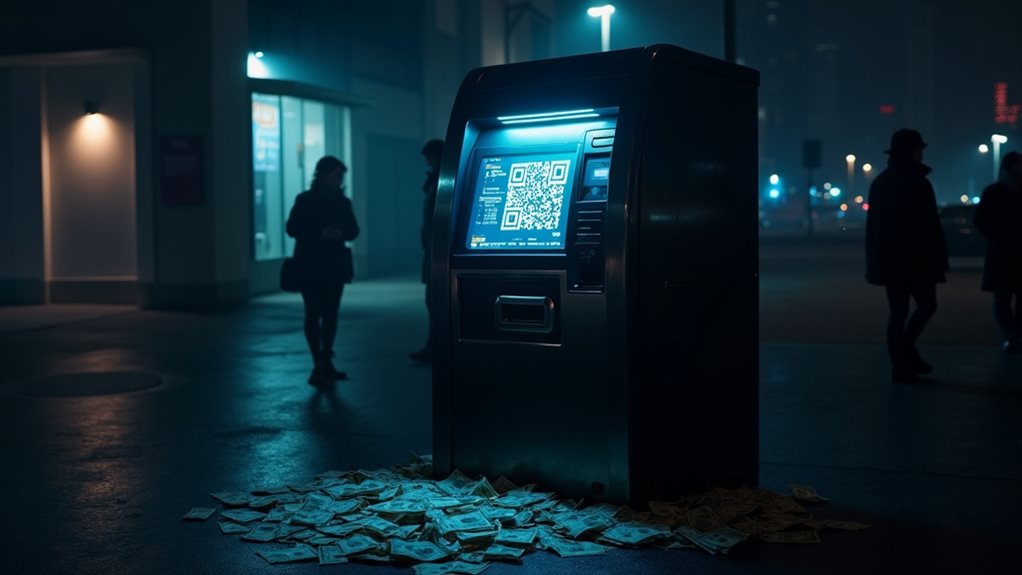A Polygon developer’s frozen wallet has blown the lid off World Liberty Financial’s questionable practices. The Trump family-controlled firm has locked hundreds of investor wallets, citing vague “high risk blockchain exposure” while reportedly pocketing 75% of $412.5 million in token sales. Developer Skvorc got flagged for using Tornado Cash, sparking outrage over arbitrary freezes. Investors are calling it theft after promised token releases never materialized. The controversy reveals deeper issues with crypto governance and regulatory gaps.

WLFI secured Skvorc’s tokens 100% from day one. No partial releases. No explanations that made sense. Just a wall of silence and corporate speak about “high risk blockchain exposure.” The company froze hundreds of investor wallets, not merely his.
Here’s where it gets interesting. WLFI isn’t some random crypto startup. It’s connected to Donald Trump’s family, who reportedly own 60% of the firm. Eric and Donald Trump Jr. are involved in management. The Trump family allegedly earns around 75% of WLFI’s revenue from token sales, estimated at $412.5 million. Not bad for a side hustle.
WLFI connects to the Trump family empire, with Eric and Don Jr. managing operations while the family allegedly pockets 75% of token revenue.
So why did they freeze Skvorc’s wallet? His crime was interacting with Tornado Cash, moving 40 ETH. WLFI also flagged him for indirect exposure to sanctioned platforms like Garantex and Netex24. Plus interaction with dashboards later classified as scams. Recent multi-signature wallets have proven ineffective against such arbitrary freezes.
Sounds scary until you realize these “risk flags” are often laughably broad and inaccurate, according to blockchain experts. The real kicker? WLFI accepted these supposedly risky deposits upfront. They only discovered the “high risk” nature when investors wanted their tokens back. Convenient timing.
Investors are calling it theft, plain and simple. They handed over money, got promises of token releases, then watched their assets disappear behind compliance walls. Multiple investors report similar treatment beyond Skvorc’s case. ZachXBT warned that false positives from flawed compliance tools could damage WLF’s broader reputation.
Legal recourse seems impossible. Skvorc notes the difficulty of challenging a company tied to the Trump family, especially with unclear jurisdiction in crypto. The lack of governing regulatory bodies makes enforcement nearly impossible. WLFI claimed their actions were protective measures against phishing attacks, not attempts to silence trading activities.
The controversy has shattered trust in WLFI among crypto participants. Investor losses reportedly reached millions during market dips, while their tokens remained locked. The company’s marketing promised token benefits and release schedules, but delivery remains nonexistent.
WLFI’s practices fuel broader debates about governance in decentralized finance. When “decentralized” projects can arbitrarily freeze assets without clear recourse, the entire premise crumbles.









